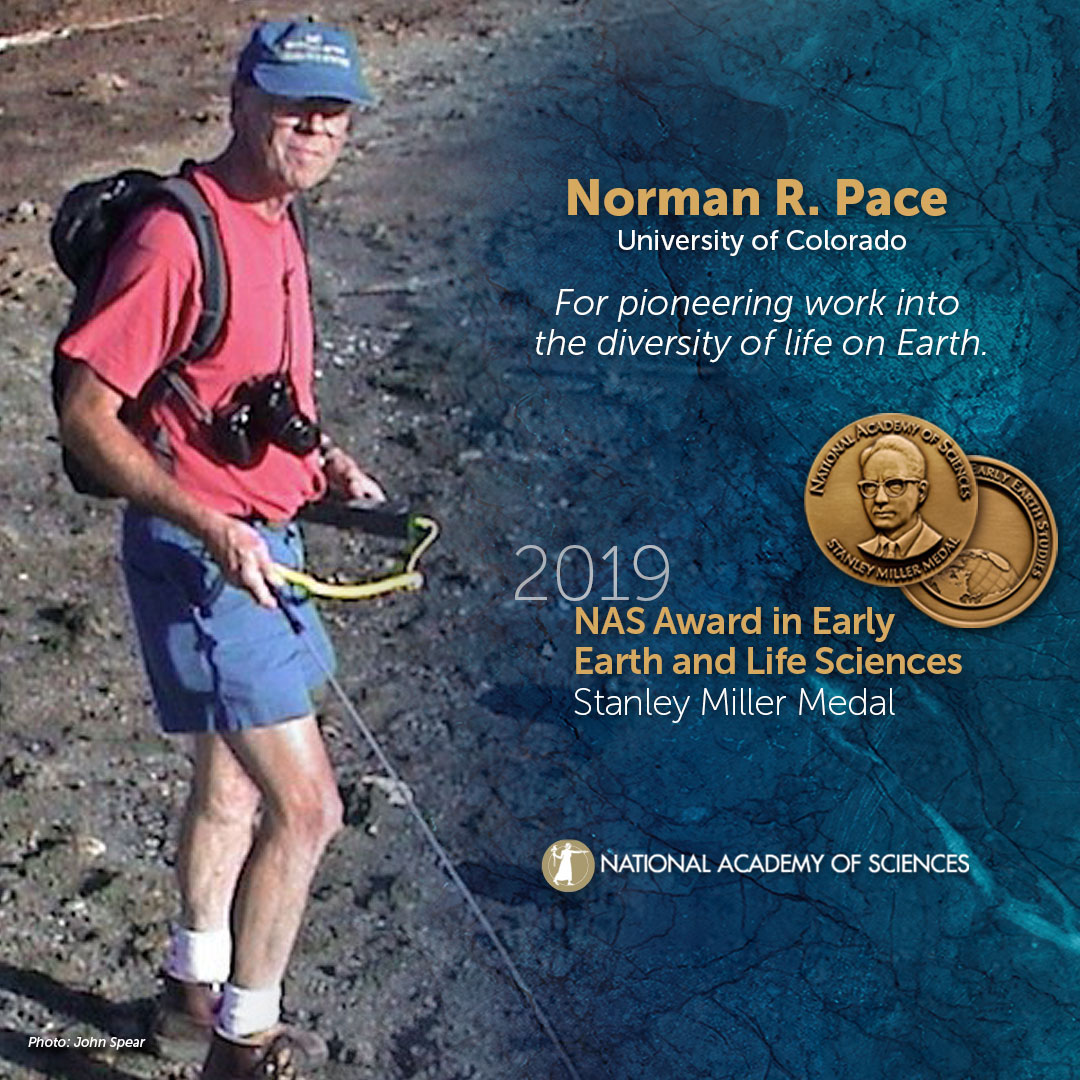EarlyEarth Miller Pace banner

Norman R. Pace, University of Colorado, received the 2019 NAS Award in Early Earth and Life Sciences - Stanley Miller Medal.
Pace, known as the father of microbial ecology, has made groundbreaking discoveries into the study of RNA, and through it life on earth.
Pace first began studying RNA structure and function. He participated in the discovery of the catalytic activity of RNAs, which contributed to our understanding of early life on Earth.
This led to the development of new technologies, including fluorescent “phylogenetic stains,” which can be used to identify microorganisms in the environment through their rDNA, including the 99.9 percent of organisms that could not previously be grown and detected in a laboratory setting. That inspired Pace’s own quest to identify new species from the most diverse places on the planet. A dedicated explorer, he has studied microorganisms from deep-sea vents and caves, as well as from inside the human body, and inspired an entire field of researchers to make similar efforts. Collectively, this type of work has resulted in a tenfold increase in the known number of phyla of bacteria—a major contribution to our understanding of the planet’s diversity of life.
The NAS Award in Early Earth and Life Sciences was established by the NAS Council in October 2008 by combining two awards: The Charles Doolittle Walcott Medal, established by a gift of Mrs. Mary Vaux Walcott in memory of her husband, Charles Doolittle Walcott; and the Stanley Miller Medal, established through a bequest from NAS member Stanley Miller. The award rotates presentation between the Charles Doolittle Walcott Medal for research on Cambrian or pre-Cambrian life, and the Stanley Miller Medal which recognizes research on Earth's early development as a planet, including prebiotic chemistry and the origin of life; planetary accretion, differentiation, and tectonics; and early evolution of the atmosphere and oceans. Each medal is presented with a $10,000 prize.


